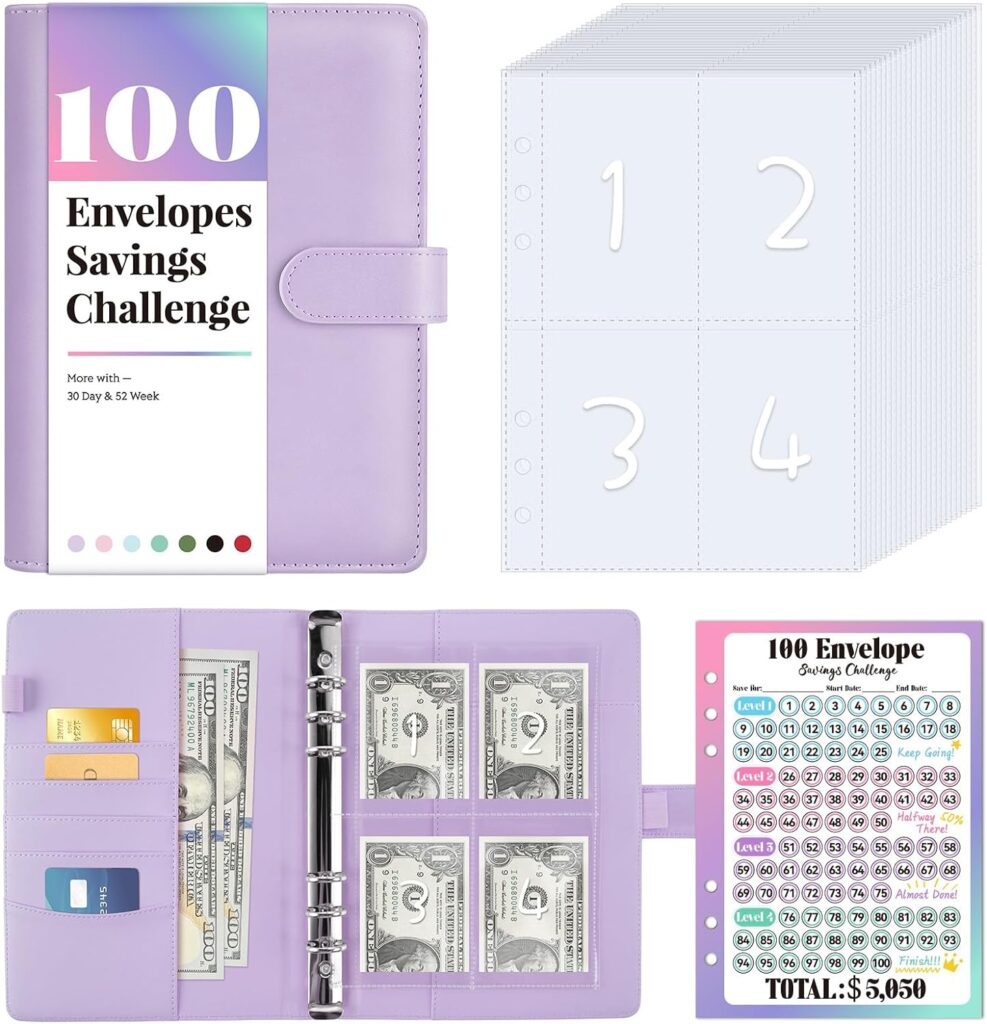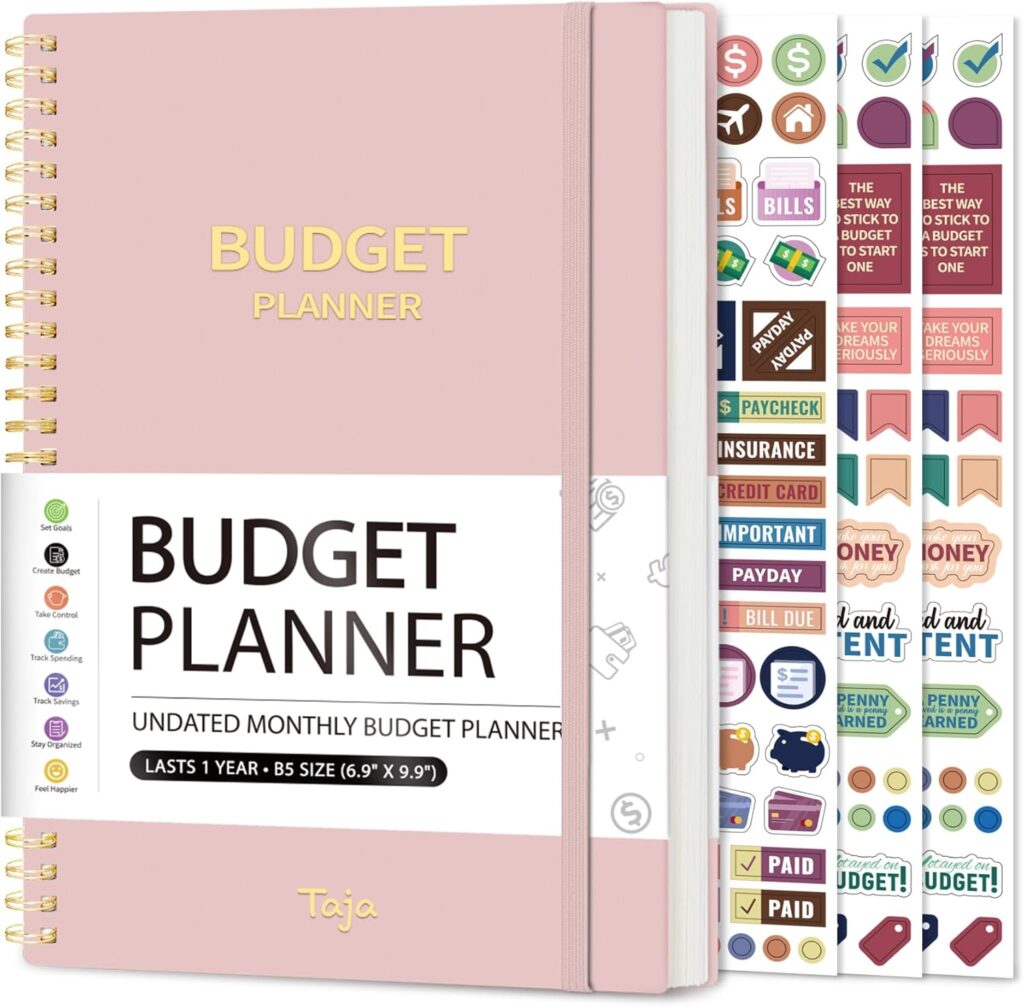
It was really only 4 or 5 years ago that I decided to embark on my wealth journey with serious intention. I say wealth journey, because it’s not just about accumulating money. Gaining and maintaining wealth involves so many other small details that often get overlooked.
Gaining wealth can start with just a small savings account of $100.00. Depending on what you do with that $100.00 can be the difference between a moment of temporary gratification, or a long term financial return for years to come.
In this post, we will examine the overall strategy for starting your journey toward long lasting financial success. We will also look at the most significant aspects of money management, and how they all work together in achieving your bigger financial goals.
Some of the links within this post, are affiliate links. This means that, at zero cost to you, we may earn a small commission if you finalize a purchase through one of those links. Read the full disclosure here. Thank you for your continued support!
Mindset For Effective Money Management

No matter how good our intentions are, there are various circumstances that can arise to trip us up at any given moment. Managing your money effectively takes commitment, focus, consistency, time, and patience. All of that begins with a mindset shift.
You have to be able to make a budget and then actually stick to it.
You have to be able to ignore that awesome last minute sale on the skirt you’ve been eyeing up (that may or not get worn more than once or twice).
You have to resist the urge to buy that latte on the way to work every single day, and instead make yourself a homemade version before leaving the house.
You have to refrain from shopping while you’re feeling emotional about something.
And you have to make sure you’re making meaningful payments on your credit card debt instead of just paying the minimal amount every month.
The list goes on. At the end of the day, changing our mindset and relationship with money, is the first step toward a successful wealth journey.
Check out my other post, New Year’s Eve Reflection, Reset, And Setting Achievable Goals With A Fresh Perspective
Treating Money As A Long Term Investment

I have to admit, it took a small inheritance to change my way of thinking about money. Sure…we’ve had a savings account and extra spending money before. Like many others, if we saved enough money for a family vacation, we were content.
A few things happened simultaneously within a short period of time. We not only received a bit of cash left for us by a family member, but like many others, we also received a bit of stimulus money due to Covid.
For the first time, we had a savings account we didn’t have to try hard for, and it all seemed to happen overnight.
This time though, we were not in a position to go on a vacation like we may have opted for before. We didn’t have any appliances that needed replacing or other high tickets repairs to be concerned with.
And buying a new large screen tv certainly wasn’t at the top of our list. All that was really left was to save it.
So, instead of letting our money just hang out in a a savings account accruing a meager couple of dollars per month, we started to investigate other options with higher and faster returns.
It was then that I decided to finally read that book that had been collecting dust on the bookshelf for so many years. A book we randomly picked up from the endcap of a book store one day…
The Complete Idiot’s Guide To Getting Rich

This book doesn’t just provide ideas on where you can save money, or stocks and cd’s you should invest in. This book takes you on a path of discovering yourself, your core values and how you can use that knowledge to invest in your life as a whole, leading to a more substantial, long term financial success.

For example…after really diving into the book, we choose to invest a little of our savings into a business. Not only does this career move align more accurately with my dream job, but it is an investment that will consistently pay out over the long term, in more ways than one.
Thus, while we will not score big overnight like one might with a stock market investment, the investment is more sound and secure.
Easy Ways To Save Money Today

There are a few easy ways to begin saving money immediately with no real effort. These aren’t new ideas…just ideas that we think of as insignificant, but do pay off in the along run.
One of the unexpected little wins my husband and I got a few years back, was from random change. Yes, just extra pocket coins we kept throwing to the change jar every few days.
It you make it a habit to clean out your pockets and purse every week and throw your extra change into a jar, your rainy day fund can accumulate very quickly.
When we finally cashed our change jar in after a couple of years, we found ourselves with an extra $700.00!
If that’s not a good investment, I don’t know what is.
Easy Savings Challenge Kit

Other Easy Ways To Save Money
- Have an automatic deduction taken from your paycheck and deposited to your savings every pay day.
- If automation doesn’t suit you, transfer a small amount every week to your savings on your own. (Treat it like a bill and be sure to send that money to your savings account regularly).
- If you have a credit card with a rewards program, consider paying all of your bills and groceries with the card. Then make a payment to the credit card each month that at least covers those expenses, to avoid interest charges. We regularly get $150-$200 deducted from our balance every month in point redemption just from using that strategy.
- Pack lunches for school and/or lunch. Even if you have to do a bit of batch cooking so leftovers can be used for lunches, it saves money you would spend buying your lunch every day.
- Do you currently own things you haven’t looked at in years, or your kids have grown out of? Yard sales are perfect for a seasonal purge and money making weekend!
- Practice restraint when it comes to impulse buys (like mentioned above).
- If your local grocery store offers special coupons for spending so much per week for so many weeks around a major holiday, plan your shopping trips accordingly and get those special offers or store wide coupons.
- DIY gifts
- Contact service providers annually, for lower rates. You may be able to get a monthly discount, especially if you’ve been with the company for a while. Most services providers have this ability. They won’t advertise it, of course. It doesn’t hurt to ask, though.
The point is to get into the habit of cutting corners where you can, even if they are small. Every little bit adds up.
Be sure to check out my other post, Freelance Opportunities: Work From Home Service Jobs For Extra Cash
Easy Budgeting Tools & Strategies

Depending on how you handle your finances and monthly incoming/outgoing, funds, there are numerous ways to create a budget and stick to it.
I use a manual budgeting strategy each month, but there are apps and other more efficient ways to budget your finances. I’m old school when it comes to number tracking, so my nifty binder is my go to method.
My binder is set up in a way that not only tracks our spending, but also tracks any area that we may have under budgeted for. It certainly helps to put into perspective the things we can and can not live without!
Other Ways Of Creating & Sticking To A Budget…
- Free budgeting apps (Empower, YNAB, Pocketgaurd, Rocket Money, etc. are popular apps)
- Envelope System (Allocate cash into labeled envelopes for specific expenses).
- Create a personalized budget spreadsheet on Google Sheets (tutorial) Or Microsoft Excel (tutorial).
- Cash Only (Use only cash for your daily expenses to limit overspending and stay within your budget).
- Debt Snowball Method (Focus on paying off your smallest debt first while making minimum payments on others, then snowball the payments to tackle larger debts).
- Meal Planning (Plan your meals for the week to reduce food waste, save on groceries, and limit dining out expenses).
- Keep track of all spending and review the results monthly.
One of the easiest budget planners to use!

Other Unconventional Budgeting Strategies

If you find yourself having a hard time saving and budgeting using the above traditional ideas, why not mix it up a bit so that saving and budgeting is more fun?
Giving yourself challenges, may be just the motivating factor you need to really crush those money management goals.
Here are just a few ideas that may make the process seem a little less ick:
- 52 Week Money Challenge: In this challenge, you save a specific amount of money each week of the year. Start with $1 in week 1, $2 in week 2, and so on. By the end of the year, you’ll have saved $1,378.
- No-Spend Challenge: Challenge yourself to go a certain number of days, weeks, or even a month without spending money on non-essential items. This can help you become more mindful of your spending habits, and make changes where needs be.
- Save The Change Challenge: Every time you pay for a purchase, round up the amount to the nearest dollar and transfer the spare change to your change jar. Over time, these small amounts can add up significantly.
- Savings Bingo: Create a bingo card with different savings goals or tasks in each square. Whenever you complete a task or reach a goal, mark it off. Aim to complete a row or the entire card within a set timeframe.
- Financial Trivia Game: Test your knowledge of personal finance with a trivia game. You can play solo or with friends/family to learn more about money management while having fun.
- Rewards-Based Challenges: Set savings goals and reward yourself with a small treat or activity each time you reach a milestone. This can help reinforce positive saving habits.
Putting It All Together

Building wealth doesn’t have to be difficult. The first step is making a solid commitment to your financial future and then, implementing actions to keep that commitment.
Once you’ve made the commitment, you will naturally decide what is most important in your life, and what changes you can make to free up funds, without feeling like you’re giving up valuable things in your life.
When we decided to invest in a business, it didn’t just become a way of making and saving money. It became an exciting new venture, and one that changed our daily lives in more ways than one.
We started small, by cutting out unnecessary expenses like every day lattes from Starbucks, or impulse buys at the grocery store that we really didn’t need.
From there, we began allocating a certain amount in our monthly budget, for savings. Treating it like a bill instead of a “we will save as we can” approach, forced us to keep our commitment without even thinking about it.
Naturally, having that extra “payment” come right out of our spending allowance, also forced us to budget better.
All of these small changes together, made building wealth doable and not feel like an impossibility.
Final Thoughts
Do you have a certain strategy or money management tips that help you to build wealth? Do you have a tracking system or favorite app that keeps everything in order for you?
Is there a milestone you’ve completed due to a budgeting process you’ve implemented? What are your financial goals for this year?
Let me know what you think, in the comments!




Absolutely loved the suggestions and tips here. What grabbed my attention more was the challenges you mention.
I love giving myself challenges.
Will surely try one of your challenges.
So glad you enjoyed! I agree…giving yourself challenges makes it a little more fun. I personally like the “52 week challenge” and the “Save the change challenge” 😊